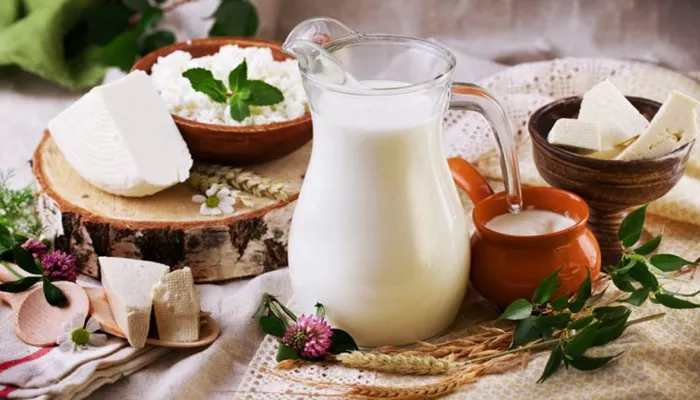Cholesterol is a waxy substance found in your blood that is essential for building healthy cells. However, having high levels of low-density lipoprotein (LDL) cholesterol, often referred to as “bad” cholesterol, can increase the risk of heart disease and stroke. Understanding which foods can raise LDL cholesterol levels is crucial for maintaining cardiovascular health. This article will explore various food categories that can contribute to elevated LDL cholesterol levels, providing detailed insights into their effects on heart health.
Understanding Cholesterol
Cholesterol is produced by the liver and is also obtained from dietary sources. It plays a vital role in producing hormones, vitamin D, and substances that help digest foods. Cholesterol travels through the bloodstream in particles called lipoproteins, of which there are two main types:
Low-Density Lipoprotein (LDL): Often termed “bad” cholesterol, high levels of LDL can lead to plaque buildup in arteries.
High-Density Lipoprotein (HDL): Known as “good” cholesterol, HDL helps remove LDL cholesterol from the bloodstream.
Maintaining a healthy balance between these two types is essential for cardiovascular health. Diet plays a significant role in managing cholesterol levels.
SEE ALSO: How Do Carotid Arteries Get Blocked?
Foods High in Saturated Fats
Saturated fats are known to raise LDL cholesterol levels. Foods high in saturated fats include:
Red Meat: Cuts such as beef, pork, and lamb are particularly high in saturated fats. Processed meats like sausages and hot dogs also fall into this category. These meats can significantly increase LDL levels if consumed excessively.
Full-Fat Dairy Products: Whole milk, cream, cheese, and butter contain high amounts of saturated fat. While dairy products provide essential nutrients, opting for low-fat or fat-free versions can help manage cholesterol levels.
Processed Meats: Items like bacon, salami, and deli meats are often made from fatty cuts of meat and are high in both saturated fat and cholesterol. Regular consumption of these products has been linked to increased cardiovascular risk.
Fried Foods
Fried foods are notorious for their unhealthy fat content. The frying process often involves oils that contain trans fats or high levels of saturated fats:
Deep-Fried Foods: Items like fried chicken, French fries, and doughnuts not only absorb unhealthy fats during cooking but also tend to be calorie-dense. Regular consumption can lead to weight gain and increased LDL cholesterol levels.
Fast Food: Fast food items are typically high in both saturated and trans fats. Regular consumption has been associated with various chronic diseases, including heart disease.
Baked Goods
Many baked goods are made with butter or shortening, which contributes to their high saturated fat content:
Pastries and Cakes: Cookies, cakes, pies, and other pastries often contain large quantities of butter or margarine. These ingredients significantly elevate the saturated fat content.
Commercially Baked Products: Store-bought cookies, crackers, and other snacks may contain trans fats due to partially hydrogenated oils.
These should be avoided as they not only raise LDL but also lower HDL cholesterol levels.
Trans Fats
Trans fats are particularly harmful as they not only raise LDL cholesterol but also lower HDL cholesterol:
Hydrogenated Oils: Often found in margarine and processed foods such as baked goods and snacks. The FDA has banned the use of partially hydrogenated oils in many products due to their adverse health effects.
Fast Food: Many fast-food items still contain trans fats despite regulations. Regular consumption can lead to significant increases in LDL cholesterol levels.
High-Cholesterol Foods
While dietary cholesterol’s impact on blood cholesterol levels is less significant than previously thought, certain foods should still be consumed cautiously:
Shellfish: While nutritious, certain shellfish like shrimp and lobster are high in dietary cholesterol. Individuals with existing heart conditions should limit their intake.
Organ Meats: Foods like liver are very high in cholesterol and should be consumed sparingly. They provide essential nutrients but can contribute significantly to overall cholesterol intake.
Sugary Foods
High sugar intake can indirectly affect cholesterol levels by promoting weight gain:
Sugary Snacks and Desserts: Items such as candy bars, sodas, and pastries not only contribute to excess calorie intake but can also lead to increased triglycerides—another type of fat that can elevate heart disease risk.
Refined Carbohydrates: White bread, pasta made from refined flour, and other processed carbohydrates can lead to spikes in blood sugar levels and may contribute to weight gain over time.
Lifestyle Factors
In addition to diet, several lifestyle factors can influence LDL cholesterol levels:
Physical Inactivity: Regular exercise helps raise HDL cholesterol while lowering LDL levels. Aim for at least 150 minutes of moderate aerobic activity each week.
Obesity: Excess body weight is linked with higher LDL levels.
Maintaining a healthy weight through diet and exercise is crucial for managing cholesterol.
Smoking: Tobacco use lowers HDL cholesterol while raising LDL levels. Quitting smoking can improve overall heart health significantly.
Conclusion
Managing LDL cholesterol is essential for reducing the risk of heart disease and stroke. Understanding which foods contribute to elevated LDL levels allows individuals to make informed dietary choices that promote cardiovascular health.
By limiting saturated fats from red meat and full-fat dairy products, avoiding fried foods and baked goods high in trans fats, reducing sugar intake, and maintaining a healthy lifestyle through exercise and weight management, individuals can effectively manage their cholesterol levels.
Related topics:
- How Do You Get IsChemic Heart Disease?
- Does Ischemic Heart Disease Cause Atrial Fibrillation?
- What Is Coronary Atherosclerosis of Native Coronary Artery?

